Wednesday, February 29, 2012
Braindancing Bytes: 'IGNITING INNOVATION FOR BRAIN-SMART FUTURE-READY LEADERS', by Dilip Mukerjea
Mindpower has replaced Manpower.
Ask Yourself:
What did I do different and better today from the way it was done yesterday?
1st Worker: “Is your job in jeopardy?”
2nd Worker: “No. My job is very secure. It’s me they can do without.”
A study of our perceptions can be a fascinating exercise. We have a strange duality of behaviour ~ on the one hand, we need variety for stimulation, on the other, we resist change.
An example from the 19th century aptly highlights this resistance to change.
In response to the majority of nations having adopted the Gregorian calendar, Russia decided to do the same. This is the system predominantly in use today. The official decision to change caused consternation in the minds of the Russian peasants; they believed that they were being robbed of several days of life, because of adjustments to the date.
The ensuing riots saw hundreds of innocent, enraged, people killed. The change was simply inconceivable and therefore unacceptable. Neither rhetoric nor reasoned explanation could convince the peasants otherwise.
Focus on mindpower eventually led to the marriage between information technology and knowledge management; it was powerfully illustrated close to two centuries years ago.
It was Sunday 18 June 1815. Troops commanded by the Duke of Wellington arrayed themselves against those of Napoleon I. The Battle of Waterloo commenced at 11:30am. By dusk, it was all over. Wellington had triumphed. Diverse historical accounts inform us that, witnessing the battle, were some carrier pigeons belonging to the Rothschilds. Once the outcome was determined, these spectators immediately flew back with the news to their astute masters, pioneers in the field of avant-garde information technology.
Unlike the Rothschilds, England had to wait several hours for news of the victory to be conveyed by despatch riders and cross-Channel packet. Meanwhile, the Rothschilds, thanks to their clever pigeons, were the first to know. They were also very certain that the stock-market would skyrocket when the news was officially announced.
By investing heavily and opportunely, they turned a little knowledge into a large fortune. Primacy prevails.
If we visit Waterloo today, and use an Amex card in a store, details of the transaction would be sent from Belgium to Amex headquarters at Brighton, England. From there, the information would be transmitted via satellite and landline to Phoenix, Arizona, where security computers ensure that a card has not been stolen and that a client’s credit is good.
Despite the relay signals having to travel a distance of some 50,000 miles, the whole operation, including checking time, takes less than seven seconds. We, the customer, would leave with our shopping, without ever realising the remarkable technical achievement our purchase represents. And this is slow compared to what’s on the horizon!
Dancing to the Rhythms of Change
In an organisation, management can only keep pace with rapidly evolving knowledge if there is extensive behavioral and cultural change.
Technology alone is an inadequate medium; used in conjunction with human factors, it helps to translate insights into new knowledge, and new knowledge into new ways of behaving. This must apply to every member of an organisation. If not, what will emerge is a small minority knowing more and more about less and less, and a large majority knowing less and less about more and more.
We live in a world of constant flux, and the status quo is an illusion. Those who perceive it otherwise are in for what Alvin Toffler would call ‘Future Shock,’ or maybe even more aptly, a state of ‘present shock’ as the future is already here!
In his book, Toffler spotlights the geometric changes we face. He addresses the last 50,000 years of humankind’s presence on the planet. If our existence were divided into lifetimes of approximately 62 years each, the arithmetic would reveal there have been about 800 such lifetimes. Of these 800, a full 650 were spent in caves.
Based on present evidence, only during the last 100 lifetimes has our species been able to communicate effectively from one lifetime to another. This was eventually enhanced via the advent of writing about 6,000 years ago. Mass proliferation of the printed word occurred during the last eight lifetimes. Reasonably precise measurement of time featured during the last four. The electric motor entered our lives in the last two.
We then see the present, the 800 witnessed and enjoyed the development of an overwhelming majority of all the material goods we use in daily life.
The rapid acceleration in our present social evolution makes the previous 799 Tofflerian lifetimes seem lethargic in comparison. The electronic ecology has been created by a genie that cannot be put back into the bottle. We will become rapidly depreciating assets ~ if we know not how to dance to the beat of evolution.
Operating at near lightspeed has had a direct impact on our attention span. Research has revealed that the average attention span of a child today is eight to twelve seconds! He or she is constantly channel surfing mentally. We have done this to them, via our technological innovations. The adult brain has been similarly influenced.
Abraham Lincoln delivered one of the most belatedly beloved speeches in the history of the United States on 19 November, 1863. This was the Gettysburg Address. When he finished speaking, however, he was greeted with total silence. Why? Because his audience was waiting for more. The preceding orator that day, Edward Everett, had spoken for two hours.
Back then, a 2-minute speech (the total length of the Gettysburg Address) was unheard of, ergo the reaction, or lack of it, from Lincoln’s audience. What has happened to the nature of human attention since 1863? The norms for prolonged focus and extended attention spans seem to have changed. Divergent thinking has eclipsed convergent thinking quite dramatically.
Most people then enjoyed two-hour orations. Today, most people breeze through 10-second channel surfing.
In 1863, there were far fewer people on earth, less than one-fourth of our present population. They led simpler, slower paced lives. The cultures of the past rewarded convergent thinking, the invaluable ability to listen and concentrate for long periods of time on a single subject, like on Edward Everett’s speech.
Yet, the mass of humankind today would most likely think the Gettysburg Address is about the right length for a speech ~ two minutes. The competitive ambience of today’s ‘marketspace’ is constantly threatened by the death of distance ~ the web of ‘electronica’ that we have spun around ourselves has brought us more in contact with, but not necessarily closer to, one another. Hence we are now immersed in real competition.
Does this attitude to challenges happen in areas of human endeavour other than industry? Yes it does.
The world was considered to be flat for hundreds of years. The evidence that it was round existed, but it was difficult for people to break out of the established ways of thinking. The view of the flat earth was reinforced by folklore. Even the maps showed warning signs that ships would fall off the edge! This was despite the fact that nobody had actually observed an edge.
We create our own perceptions, then create our realities to match them.
The raw materials required to build a space shuttle existed in the Stone Age. What does this tell us about ourselves? What have we not yet discovered that is lying about us, that will revolutionise the rapidly advancing future?
Today, change and flux surround us. Blink, and you could miss something important. Not only must we accept change, we must initiate it when circumstances show us that it is advantageous to be proactive.
There is a real danger that your realities have been shaped by the assumptions and expectations of those around you. Other people’s fixed outlook on life could be contagious and you could become a victim of someone else’s myopia.
We have to transform ourselves from being passive observers of nature to active choreographers of life. Yet, biologists have noted that, over the millennia, animals adapt to gradually changing conditions so well that they may ignore threats to their existence: The Boiled Frog Syndrome. In the corporate ecosystem, serious problems are ignored while relatively trivial issues get urgent attention.
Social matters are the same, often due to emotional illiteracy. Why is this? Because we tend to take serious issues for granted: They have been with us for so long that we have adapted to them. But, if something stimulates the stalemate, alters the status quo, we sit up and take notice. The squeaky wheel gets the most attention.
Today, we must acknowledge a new truth: mindpower has replaced manpower.
Learning, development, and growth all involve active participation in life; none of them is a spectator sport. We need to be strongly committed and deeply involved in the processes. This dynamic immersion in life inspires the creation of incandescent enclaves of excellence.
Think about it.
Why the Need for Creativity?
Welcome to the Age of Brainware. Those who do not know this, are victims, not victors. The crucial variable in transforming knowledge into value is ‘creativity.’ Creativity ignites our audacity; it helps us become what we are capable of being.
Incremental evolution has been trumped by quantum revolution. The workscapes of tomorrow have their genesis in the mindscapes of today. Corporate landscapes are littered with the charred remains of burnt-out executives. There is only one ultimatum: Innovate or Incinerate
Too many organisations are obsessed with ‘best practices’ when what is needed are ‘revolutionary practices,’ ones that are radically different; the pace of change demands intellectual mutiny vis-à-vis past protocols. Previous success has become irrelevant in today’s fail-fast-leap-ahead quantum dance with competitive innovation.
Can creativity be taught?
No. But it can be dramatically unleashed. This is achieved through the medium of acquiring handson, easy-to-learn strategies for boosting idea generation.
Every individual is innately creative, but most people have no idea how to recognise and direct their creativity towards productivity.
There is a whole range of practical techniques in the domain of ‘creativity and innovation’. Each of them is:
- designed for immediate application
- targeted at the diverse human intelligences
- capable of converting ideas into revenue
Not one of them is taught in schools or corporations. But all of us need to learn them as soon as possible if we are to emerge as winners in this new Age of Competitive Intelligence.
Ideas built the pyramids of Egypt, the gardens of Japan, the cathedrals of Europe. Likewise, the megacorporations of Disney, Microsoft, and Sony were propelled into existence by the high-octane component of ideas.
No ideas, no future.
Never before in the history of the human race has there been a period such as now, where ideas have been recognised as the prime component of Intellectual Capital, the new currency of commerce.
Brain Force has replaced Brute Force.
The world needs to be reconfigured continually if humanity is to meet the mounting challenges of the marketspace. Any organisation that opts to remain the same has only one future ~ stagnation, leading to annihilation. No longer is ‘doing nothing’ an analogy for ‘playing safe’. In fact, it is the voluntary evaporation of one’s identity.
In order to keep generating new ideas, we need to learn how to possess different perspectives. The answer lies in learning the practical tools of ‘creativity’.
Creativity distinguishes today’s winners. They are more productive, more profitable, more effective, more efficient, and more agile. Their capacity for thinking in new ways about old problems empowers them to outperform their competition. In fact, in the final analysis, they have no competition!
Charge your chromosomes with ingredients for mastering uncertainty, Know also that leaders without creativity are as useful as cars without fuel, or people without food.
The vital catalyst for the creation of wealth, excitement, and fun, is ... creativity. How creative are YOU?
Remember that education can never be as expensive as ignorance!
“Somewhere out there is a bullet with your company’s name on it. Somewhere out there is a competitor, unborn and unknown, that will render your strategy obsolete. You can’t dodge the bullet. You’re going to have to shoot first.”
~ Gary Hamel, Strategy Guru and visiting professor at the London Business School
What is your strategy, how will you execute it, and do you possess the core skills of creativity and innovation to ensure sustainable success...into the long term?
The concept of jobs is becoming obsolete. There will be work aplenty, and that will require incessant creativity. It is now well known that our counterparts at the end of the 21st century will see today’s struggle over jobs as a fight over deck chairs on the ‘Titanic’.
You may feel secure in your present situation. But only one thing is sure: the notion of a permanent job is an illusion.
Consider the story of Balmung, the magic sword. It belonged to Siegfried, the Germanic hero.
Balmung was so sharp that it could slice an armoured warrior in two, from the top of his helmet to the soles of his iron boots. But the cut was so fine that the wounded man could not even feel it. Until he moved. And then he fell into two pieces.
You may feel likewise. But just wait until you leave your job. We live in perilous, gyrating times. And the possibilities are exciting. New challenges are bringing us to the threshold of our minds.
"The era of womb-to-tomb employment is over. The message for the smart worker is to learn as much as you can, about as much as you can, as fast as you can, and increase your value to your employer, as well as your own career marketability."
~ Bud Carter, The Executive Committee, BUSINESS THINK TANK;
Subscribe to:
Post Comments (Atom)


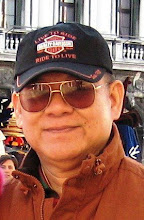


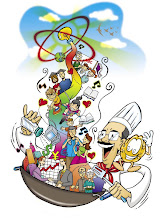
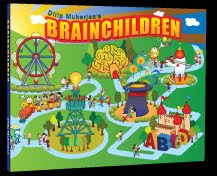



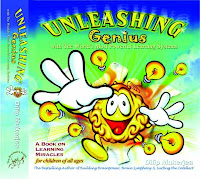
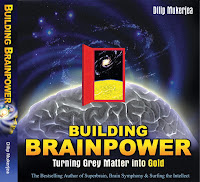
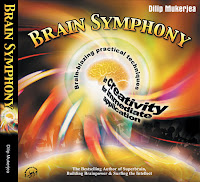





No comments:
Post a Comment